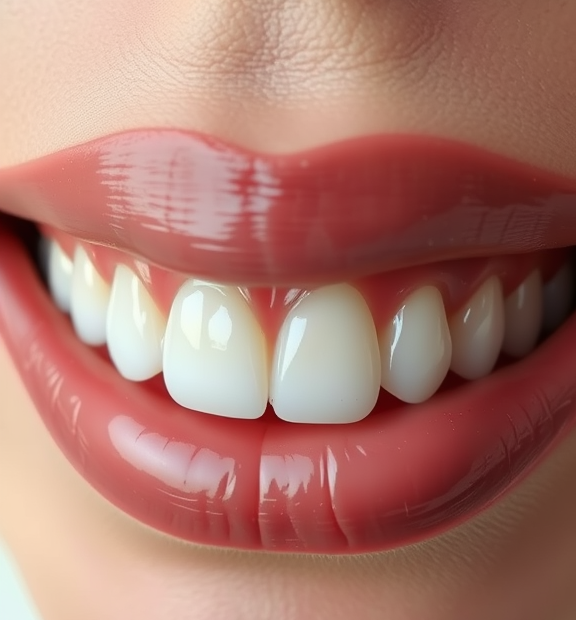Understanding Insurance Coverage for Dental Veneers: What You Need to Know
When considering dental veneers to enhance your smile, understanding the financial aspect is essential. One common question arises: does insurance cover veneers? The answer isn’t straightforward, as it heavily depends on your specific dental plan and individual circumstances. Here’s a closer look at what you need to know about insurance coverage for veneers.
What Are Dental Veneers?
Dental veneers are thin shells made of porcelain or composite resin that cover the front surface of teeth. They can improve the appearance of stained, chipped, or misaligned teeth. Many people opt for veneers to achieve a more attractive smile and boost their confidence. However, the cost can be significant, often ranging from $800 to $2,500 per tooth, leading to the question of insurance coverage.
Dental Insurance Plans Explained
Understanding your dental insurance is crucial when exploring coverage for veneers. Most plans fall into three categories: pure preventive plans, basic plans, and comprehensive plans. Here’s a quick breakdown:
- Preventive Plans: These primarily cover routine check-ups and cleanings but often do not cover cosmetic procedures like veneers.
- Basic Plans: These may cover fundamental restorative dental work, such as fillings and extractions. However, veneers are typically not included as they are considered a cosmetic enhancement.
- Comprehensive Plans: These plans offer more extensive coverage, which might include some cosmetic procedures. Even so, it’s common for veneers to fall outside the covered services.
When Will Insurance Cover Veneers?
Insurance companies categorize veneers as a cosmetic procedure, meaning they usually do not cover them. However, there can be exceptions. Here are a few scenarios where coverage might apply:
- Medical Necessity: If a dentist determines that veneers are necessary for health reasons, such as a severe tooth injury, insurers may be more likely to provide coverage.
- Accident Coverage: If your veneers are needed due to an accident that damaged your teeth, your dental insurance may help cover some of the costs.
- Discount Programs: Some insurance plans offer discount programs that can help offset the cost of veneers. This means you may still pay out of pocket, but at a reduced rate.
Check Your Benefit Summary
Before proceeding with veneers, take the time to review your insurance plan’s benefit summary. Here are some steps you can follow:
- Contact your insurance provider to clarify your coverage.
- Ask about your specific policy’s stance on cosmetic treatments.
- Get a detailed estimate from your dentist that outlines the procedures and costs.
- Inquire if veneers might qualify under preventive or necessary treatments.
Financing Options for Veneers
If your insurance does not cover veneers, don’t lose hope. Many dental offices offer financing options that can make the procedure more affordable. You can explore these options:
- Payment Plans: Many dental practices provide payment plans that allow you to spread the cost over several months.
- CareCredit: This is a popular financing option specifically for health and dental procedures. It offers flexible monthly payments.
- Health Savings Accounts (HSAs): Using pre-tax dollars from HSAs for dental work can save you money.
Consult with Your Dentist
Ultimately, the best step you can take is to consult with your dentist. They can provide personalized insights regarding your specific situation. Your dentist can also help you gather necessary documentation to submit a pre-authorization request to your insurance provider, increasing your chances of gaining coverage under certain circumstances.
Love what I do? Be a hero and help me keep creating awesome content!
Support My Mission Now!Every donation fuels more great stuff – thank you, legend!
Investing in dental veneers can be a significant step toward improving your smile and confidence. Understanding whether your insurance covers veneers is essential, and thorough communication with both your dental provider and insurance company will help clarify your options. Whether insurance steps in or not, a stunning smile is often worth the investment, and knowing your financial possibilities can help you make the best choice.
The Costs and Benefits of Dental Veneers: Are They Worth the Investment?
Dental veneers are a popular option for those looking to improve their smile. They are thin shells made of porcelain or resin composite that are custom-made to cover the front surface of teeth. However, before deciding on getting veneers, it’s essential to understand the associated costs and benefits. This can help you determine whether they are worth the investment for you.
Understanding the Costs of Dental Veneers
Love what I do? Be a hero and help me keep creating awesome content!
Support My Mission Now!Every donation fuels more great stuff – thank you, legend!
The cost of dental veneers can vary significantly based on several factors:
- Type of Material: Porcelain veneers are typically more expensive than resin veneers due to their durability and natural appearance.
- Location: The cost of dental services varies by region, with urban areas often charging more than rural ones.
- Complexity of Case: If your teeth require additional work, such as orthodontics or teeth whitening, this can increase the overall price.
- Dental Practice: The experience and reputation of the dentist can also influence costs significantly.
On average, you might expect to pay anywhere from $500 to $2,500 per tooth. Since veneers typically require a bit of preparation on the teeth, including some enamel removal, they are usually considered a more permanent option than alternatives like bonding or teeth whitening.
Are Dental Veneers Covered by Insurance?
This is a common question among individuals considering veneers. Typically, dental insurance does not cover cosmetic procedures, including veneers, because they are often seen as elective. However, if the veneers are needed to repair damage resulting from decay or injury, insurance may provide some level of coverage. It’s important to check with your dental insurance provider to understand your specific plan.
Benefits of Dental Veneers
Love what I do? Be a hero and help me keep creating awesome content!
Support My Mission Now!Every donation fuels more great stuff – thank you, legend!
Many people opt for dental veneers for several compelling reasons:
- Improved Aesthetics: Veneers can enhance the color, shape, and size of your teeth, leading to a more uniform and attractive smile.
- Permanent Solution: With proper care, veneers can last over a decade, making them a long-term investment for a beautiful smile.
- Stain Resistance: Porcelain veneers are highly resistant to staining, which means they maintain their bright appearance for longer than natural teeth.
- Minimal Tooth Alteration: Unlike crowns, veneers require less alteration of your natural tooth structure, preserving more of your tooth’s original strength.
Factors to Consider Before Getting Veneers
Before making your decision, think about these factors:
- Long-Term Commitment: Veneers are a commitment that may require future replacements, making them a long-term investment.
- Oral Health: If you have gum disease or cavities, these issues must be addressed before considering veneers.
- Personal Preferences: Consider if you prefer the feel and appearance of natural teeth over the look of veneers.
Love what I do? Be a hero and help me keep creating awesome content!
Support My Mission Now!Every donation fuels more great stuff – thank you, legend!
Additionally, it’s best to consult with your dentist to discuss your goals and any concerns. They can assess your dental health and provide tailored advice on whether veneers are suitable for you.
Making the Decision
The decision to invest in dental veneers can be significant. If you’re looking for a solution to enhance your smile, weigh the costs against the benefits, considering your personal circumstances and budget. Remember, a beautiful smile can boost your confidence and impact your overall well-being.
While dental veneers involve cost, their aesthetic benefits, longevity, and minimal invasiveness can make them a worthwhile investment for many individuals. Be sure to assess your dental health, consider your options, and consult with your dentist to make an informed decision that’s best for you.
Conclusion
When considering whether insurance covers veneers, it’s essential to evaluate both your insurance plan and the specific reasons for getting veneers. Many dental plans categorize veneers as cosmetic procedures, which often means they are not covered. However, if the veneers are needed for functional reasons, such as correcting a significant dental issue, you may find some coverage options available.
Understanding the costs associated with dental veneers helps you weigh the financial implications. While they can be a considerable investment, the benefits—such as enhanced appearance, improved self-confidence, and potential longevity—can make them a valuable choice for many individuals. It’s crucial to consult with your dentist to determine the most suitable options for your needs and budget.
Balancing the aesthetic and functional aspects of veneers can lead to a brighter smile and increased confidence. Before making a decision, take the time to discuss your goals with your dental professional and review your insurance policy details carefully. This thorough approach will help you navigate the often complex landscape of dental insurance coverage, ensuring that you make a well-informed decision that aligns with both your dental health needs and financial situation. Remember, investing in your smile is not just about appearance; it can also significantly affect your overall well-being and quality of life.

